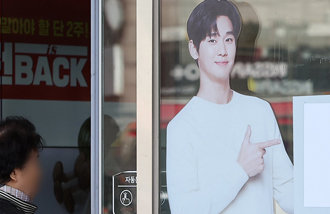Fire reveals Kakao’s lack of disaster response capabilities
Fire reveals Kakao’s lack of disaster response capabilities
Posted October. 17, 2022 07:35,
Updated October. 17, 2022 07:35
A fire at the SK C&C Pangyo Data Center in Seongnam, Gyeonggi, during the weekend caused a server outage affecting the Kakao messenger app for several hours. Some of the mobile services on Kakao Talk were restored, but the rest of the services suffered an outage for more than 20 hours. The impact was nationwide, with Kakao Talk having 47.5 million users and being a gateway to other services.
Companies such as Kakao must have dual data centers in preparation for disaster events. The other server can serve as a backup to provide seamless service if an incident occurs at a server. The recent incident would not have happened if the backup server had worked for Kakao. “We have a dual data center system to protect ourselves in external incidents,” explained Kakao. But this does not explain why it took 10 hours to restore some of Kakao Talk’s most simple features. Moreover, what good is a system that does not even work due to a fire that occurred in a power room, not even a server room, not even caused by a disaster such as an earthquake or terrorist attack?
Back in April 2012, when it was recently founded, the company suffered a power outage to its data center, which caused a service outage for four hours. It was criticized for not separating its server. Over the past 10 years, Kakao spun off its business, expanding to more than 130 business entities, serving ride services and payment services based on the messenger app. It was so preoccupied with expanding its business on a scale that is around the 10th largest in the country that it ignored investing in data centers, one of the most fundamental areas of investment, that a service outage caused nationwide communication disruption.
Kakao’s response after the incident falls short of expectations of the country’s number one messenger app. According to government guidelines, major IT companies are required to share contact information where inquiries can be received. However, Kakao uploading on Twitter notifying its users of a contact point took place five hours and 25 minutes after the outage.
Naver, which also had a server in the data center where the fire occurred, also suffered from a connection error on some of its services, though the scale was not as large as Kakao. Stable operation of data centers is becoming more critical than ever. Global IT companies run practice drills in preparation for a disaster that may bring a server down. Companies should reinspect their backup framework and re-write contingency manuals.
Headline News
- Opposition parties pass amendment to Commercial Act
- Impeachment motions against top officials dismissed
- IU's residence ranked as the nation's most expensive apartment
- K-medicine saves 300 lives in Mongolia through liver transplant skill transfer
- Prisoners in N. Korean camps suffer from torture at minus 30 degrees







